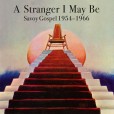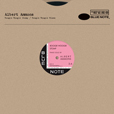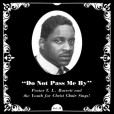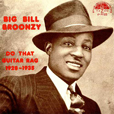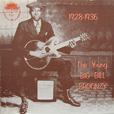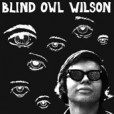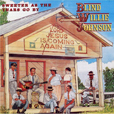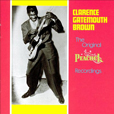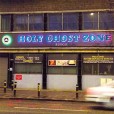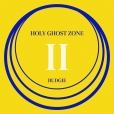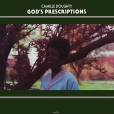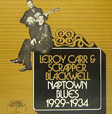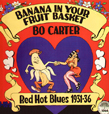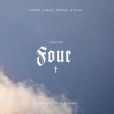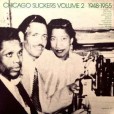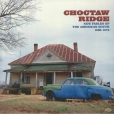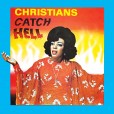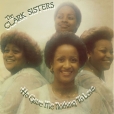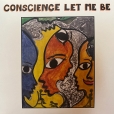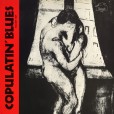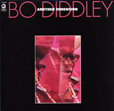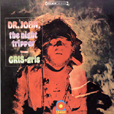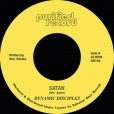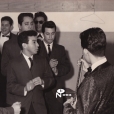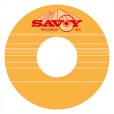Your basket is empty

The first of three volumes surveying surely the mightiest Gospel label of them all.
Stomping, rollicking gospel music, intermingling with raw soul, searing blues, hard-rocking doo-wop and jazz, and storming r&b.
Infused and incandescent with the hurting, surging indignation of the Civil Rights movement, here are twenty-four precious scorchers by giants like the Staple Singers and Jimmy Scott, alongside devastating sides by less celebrated names like the Harmonising Five of Burlington, North Carolina, and teen-group the North Philadelphia Juniors, culminating triumphantly with slamming, sanctified versions of Hit The Road Jack and Wade In The Water. Drawn from nigh-impossible-to-find 78s, sevens and LPs, hardly any of these recordings have been reissued since their first release.
Presented in a gatefold sleeve, with full-size booklet; beautifully designed, with stunning, rare photographs and original Savoy artwork. Sound restoration and mastering at Abbey Road; pressed at Pallas.
Co-curated by Greg Belson, compiler of Divine Disco; with deep, extensive notes by Robert Marovich, author of A City Called Heaven: Chicago and the Birth of Gospel Music (University of Illinois), and host of the award-winning radio show Gospel Memories.
‘This sequel to their landmark 1971 masterpiece Like A Ship finds the young Chicago preacher and his Youth for Christ Choir continuing their genre-bending spiritual journey. Banging drums, soaring falsettos, euphoric tambourines, effulgent horns, and Barrett’s unwavering devotion spark off a forty-piece choir, working up a sanctified slab of gospel funk. Pressed in a minuscule quantity in 1973, Do Not Pass Me By was sold primarily from the pulpit of Barrett’s Mt. Zion Baptist Church, disappearing into Chicago’s south side for forty-five years.’
Thoroughly entertaining downhome blues, intricate ragtime, hokum and instrumental guitar stomps.
The greatest gospel bluesman; one of the very greatest bottle-neck guitarists.
Almost overwhelmingly intense and gripping.
Sensational Texan guitar blues. Gatemouth comes out of T-Bone Walker. Don Robey started the Peacock label, just to put his records out. Without Clarence there is no Johnny Guitar Watson. Killer, killer, killer.
Riding in resplendently on the cassock tails of The Gospel According To Budgie mixtapes and The Good Books (with Alchemist): still deeper, giddier blends of nineties gospel and nu bounce. Back in.
Digging yet deeper and more devastatingly in the gospel bins of the Black Atlantic, HGZII has its genesis in work undertaken for Kanye West and the Sunday Service in Wyoming, before enfleshment and fine-tuning back at home in the City of Angels.
Originally out on the TK imprint Gospel Roots in 1978. We included the curtain-raiser Elijah Rock on our overview of the label, Christians Catch Hell.
Outstanding.
Private-press gospel boogie from Michigan band Cash Money, featuring full brass and vocal harmony. Plus some ace, synthy, slap-bass, choral gospel soul from Ricky Womack in 1990, in the tradition of the great DJ Rogers.
A second volume of ‘the best and rarest Chicago blues of the early postwar era.’ Little Walter, Muddy Waters, Sunnyland Slim, Floyd Jones, Snoooky Pryor, Roosevelt Sykes… all present and correct.
You need it for Johnny Shines’ Living In The White House, about setting society to rights, over the rocking saxophone of J.T. Brown. ‘I want to live in paradise, make servants out of kings and queens / Now don’t shake me please darlin / This is one time I want to finish my dream.’
Utterly magnificent, sublimely soulful survey of the Gospel Roots label, subsidiary of the mighty TK Records at the height of the Miami Sound.
A&R was co-ordinated by Gospel legends Ira Tucker — from the Dixie Hummingbirds — and Ralph Bass, veteran producer with Savoy, King and Chess. The label was run by Timmy Thomas, who had recently smashed with Why Can’t We Live Together, for another TK spin-off, Glades. Operations were overseen by Henry Stone himself, unlikely King of Disco, who had recorded a young Ray Charles, and pushed forward James Brown. They drew in artists from all over the US, from St. Louis, Columbus, Memphis, Brooklyn, Cabrini Green in Chicago: unknowns like Camille Doughty, reluctant to jeopardise her job at GM (‘Generous Motors’) in Detroit, and huge-sellers like the revered Brooklyn All Stars, who started out on Peacock in 1958.
Choral belters, deep ballads, harmony quartets, epic city-blues, gritty funk, powerhouse female soul… Killer-diller Philly like a scorching version of Harold Melvin & The Blue Notes’ Wake Up Everybody; and Jean Austin’s raw Spirit Free, co-written by Ronnie Dyson, produced by Jesse James at Future Gold. Chicago Sound like The Fantastic Family Aires — named after the family’s furniture store on North Cicero, but reminiscent of the Staple Singers at their best — through to the full-blown glory of The Fountain Of Life Joy Choir, led by Marvin Yancy from The Independents, and featuring Natalie Cole… Singers like Versie Mae Gibson, from the Jordans, by rights up there with Irma, Etta and Ree… Bangers 100%-guaranteed to find their way into Theo Parrish sets; and mortal delirium for the prissiest of soul and gospel purists.
Beautifully presented… the LPs with a 12”-square, full-colour, sixteen-page album of photos and original artwork, the CD with a forty-page booklet — and truly outstanding notes, including insightful new interviews across the board; mastered at Abbey Road.
Dread and civitas, grit and transcendence.
The Clarks’ fourth, pivotal album for Westbound’s Sound Of Gospel label, from 1979, hustling them firmly towards the dancefloor. Traditional soul-based gospel like My Cup Runneth Over alongside disco-influenced gems like My Life Is Complete With Jesus and ‘Everything Is Gonna Be Alright.
Sparkling, uproarious ragtime and blues — randy, porno and ooh-er — with Sidney Bechet, Bessie Smith and Jelly Roll Morton.
Lucille “got-fat-from-fuckin” Bogan is the filthiest of the lot: “I got nipples on my titties, big as the end of my thumb, I got somethin’ between my legs’ll make a dead man come.”
‘Venomous Tex-Mex R&B and early rock n’roll from San Antonio’s West Side scene. From 1961-67, Bexar county kingmaker Abe Epstein cut every teen combo to grace the Patio Andaluz stage, launching the careers of Doug Sahm, The Royal Jesters, Sonny Ace, The Dreamliners, and hundreds more throughout the decade.’
Red hot gospel soul from 1983. Only ever issued as a test white-label; never before released commercially.
Plus some classic early-eighties soul vibes on the flip, as Helen Hollins — from James Cleveland’s Southern California Community Choir— magnificently busts loose Burt Bacharach, strutting resplendently onto the dancefloor with her dad, husband and two daughters Alicia and Francheasca in glorious cahoots.
Lovely spot-glossed sleeve.
Devilishly limited, all three of our Savoy singles.

